Restaurant Cavallino, the new version opened in June in the headquarters of Ferrari in Maranello, stands out as (yet another) masterpiece from Massimo Bottura. It's such a successful prototype it can potentially become a point of reference. The chef, who with Francescana has already established the very concept of Italian fine dining on a global scale, is now working on the concept of trattoria (Gucci Osteria) and of synthesis between Italian excellences (food, art, design, luxury made in Italy at Casa Maria Luigia, summa of the genius loci). Gucci is the osteria-turned-glamour, the famous fashion brand that gives new value to strolghino and tortellini. It has however a cosmopolite vocation, with chef Karime Lopez and dress rehearsals in Piazza della Signoria in Florence. The format, however, shows the power of the Italian essence (and of trattoria) and indeed it's already been replicated in Beverly Hills, Tokyo, with perfect glocal crossovers, like the Emilia Burger. Casa Maria Luigia is instead the living museum of hospitality, as if it were the estate of a Renaissance nobleman ready to welcome his international guests, showing them the beauties of our country, including cuisine, of course.
Both share the same conceptual foundations, but leaning towards the outside. Cavallino has similar foundations but is more focused on the territory, it researches a mystery, the spectacular concentration of intelligence of this place: fast cars and slow food, why here? What has made this land unique? So while at Gucci there's Mexican Lopez, at Maria Luigia Canadian Jessica Rosval... Cavallino needed someone from Emilia. And Bottura already had one, for 13 years in Via Stella: Riccardo Forapani from Mirandola. As the chef said, «we basically sent my grandmother to the moon for two years and then we had her fall with a parachute on Maranello», where the emotion is all about this return, in realising the spectacular evolution of the old astronaut back with her feet on earth.
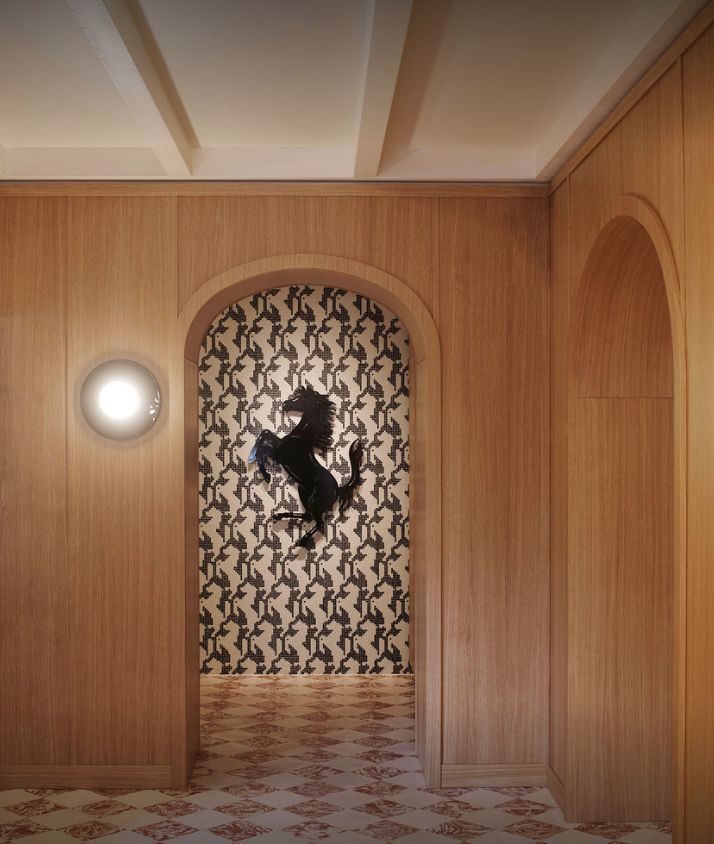
The entrance of Cavallino
But let's return to the excellent food (and service, and wine), because there's much more, and
Cavallino unravels like a fascinating hypertext.
To give an idea: Ferrari is a brand of excellence – luxury for few people – but it's also pop, emotional, democratic – a feeling many share. In the style of Fantozzi: a big onion frittata (and indeed at Cavallino they serve onion frittata!), beer and crazy cheering for the Red cars during the Gran Premio d'Imola or Monza on television. "Trattoria" Cavallino, which took its shape from a trattoria but making it noble, offers the same ideal journey: it allows everyone – with a tasting menu for 65 euros – to enjoy the myth. Variante Bassa and Tagliatelle al ragù, Drake and Zuppa inglese. A feast that unravels in a "popular", warm, light setting; a harmony created in the "mess", in the intensity, with strong colours dominated by the Ferrari red, emotional emblems that fill the rooms as much as the (desired) chatter, the noise you can notice, like in the old Emilia. In other words: all the senses must perceive the openness that is typical of trattorias and of the Emilian spirit. But everything is also interpreted and strengthened by the powerful soul, by the roaring engine of Italian-style beauty: Ferrari in primis, but not just Ferrari.
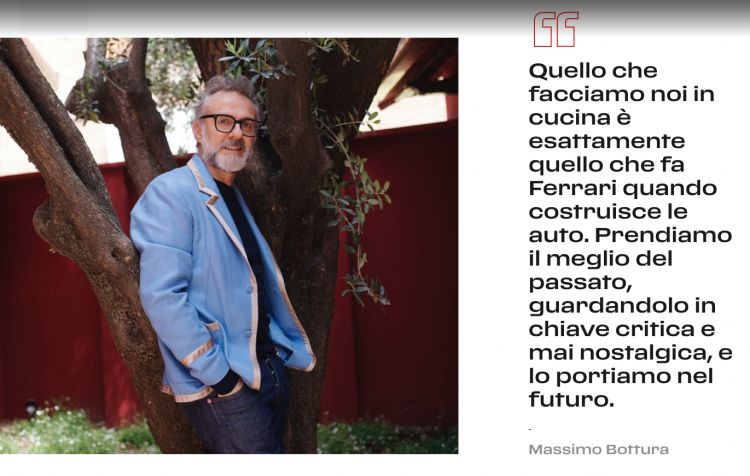
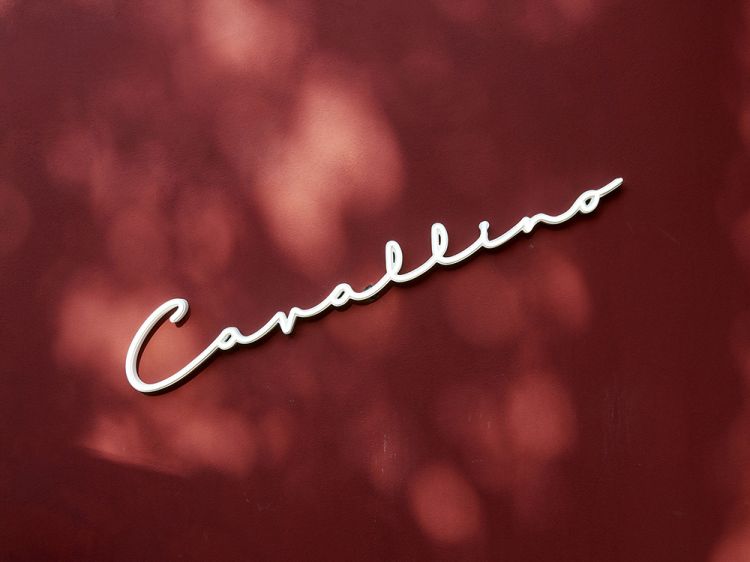
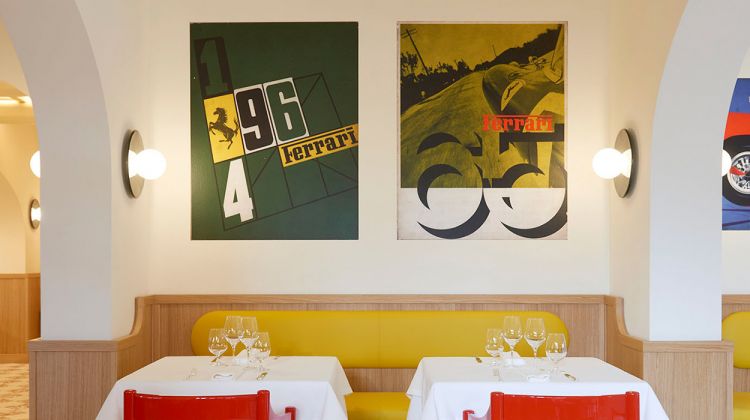
Every detail converges. Plates by
Ginori, which are also a blast of vivid colours. The elements on the walls recall the history of the
Cavallino Rampante, like the old photos with
Enzo Ferrari on the front page of the menu.
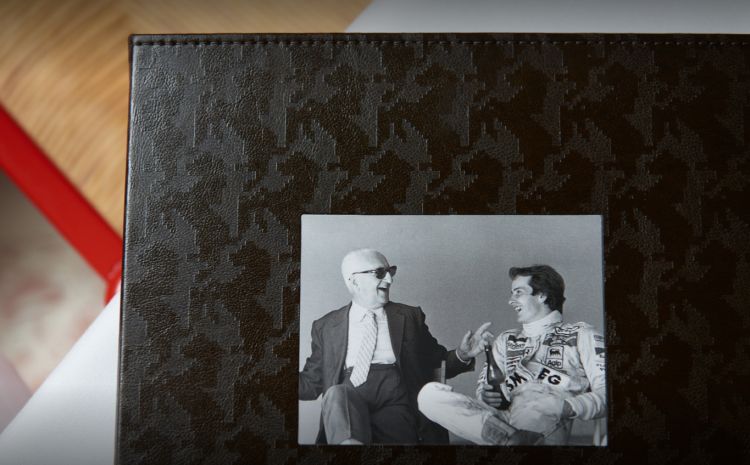
Old photos of Enzo Ferrari, "Drake", on the menu at Cavallino
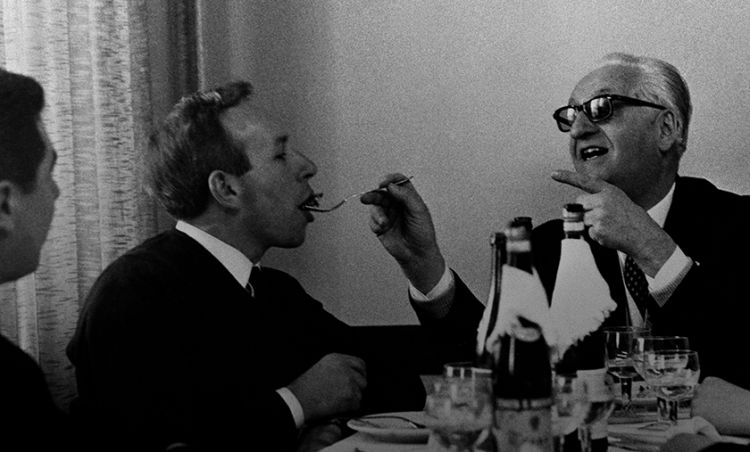
Enzo Ferrari (to the right) at Cavallino. Ferrari took over, together with the area where the plant is now located, a small farm that was first used as canteen and then, in 1950, officially called the restaurant Cavallino
There are hints at
Piero Fornasetti's "
themes and variations" in the sideboards decorated with photos of the
Ferrari engines.
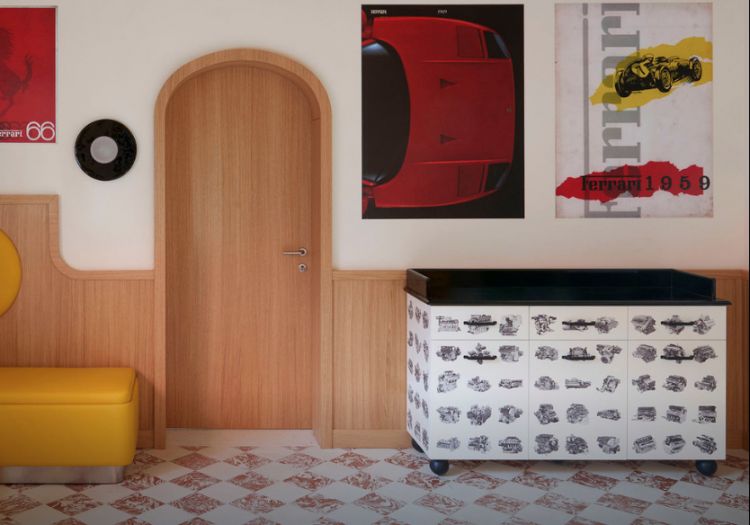
To the right, a sideboard at Cavallino inspired by the art of Fornasetti
The embroidery work on the tents: feelings and handiwork, that recall simplicity but now become precious decorations, because they are based on the craftmanship that was typical and original of the great Italian design of the Sixties, the inspiration behind
Cavallino.
Coffee tables decorated with a
pied de poule design (another hint at the glorious Sixties, for instance at
Roberto Capucci and then at
optical art, which is also a symbol of pop culture) reinterpreted to disguise the many symbols of the
Cavallino (pay attention to the white silhouettes on the pillars in the photo below. The plot is in the detail).
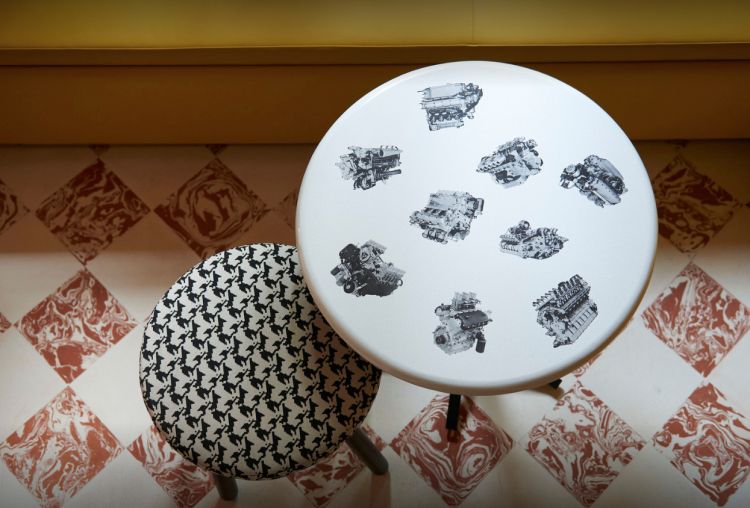
A mix of decorations: to the right, inspired by Fornasetti, to the left pied de poule hinting at the emblem of Ferrari
Two elements stand out above all: the floor is like a flying carpet, or rather it recalls the tablecloth of a trattoria, so it's as if you're walking
on the table, another symbolic reference to the strong idea of Italian conviviality. And then the chairs that deserve a short digression.
Bottura recovered them from the dining room of the club house at
Golf Club Carimate in Como; he sent them to
Cassina, so they would be perfectly
restauranteured. They had been in Carimate for quite a while: the great
Vico Magistretti had designed them – an original idea, back in 1959; it was one of his very first designer projects, perhaps the most famous one. They are a new take on the typical wood chair with hay seat, perfected with a sober Scandinavian touch (the chair was born because at the time «importing
Alvar Aalto's and
Arne Jacobsen's chairs was too expensive»,
Magistretti explained), painted with a bright aniline red, a varnish that until that moment had only been used for toys. The first series, the one now at
Cavallino, was produced by
Fratelli Mario e Luigi Comi in Meda, while in the Sixties it was
Cassina who obtained the license. It was the chair of the
"Swinging London", also called "
the Beatles' chair" thanks to
Terence Conran; and according to a legend it also appears on the cover of one of their records. Pop, pop, pop.
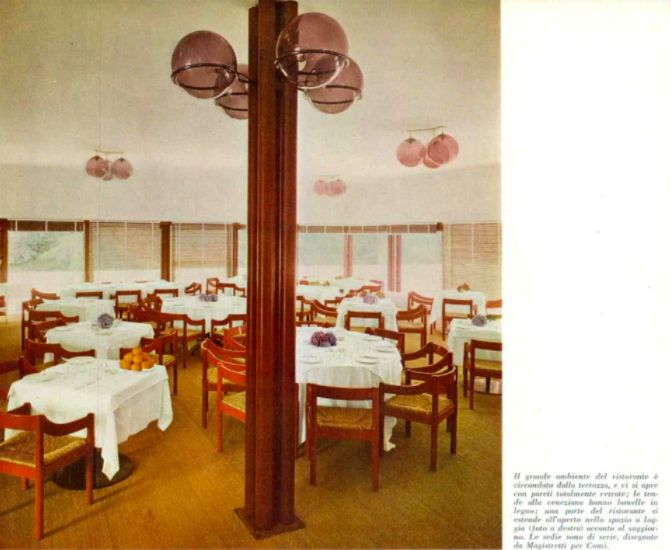
The dining room at the restaurant of Golf Club Carimate, Como, with the original chairs from Magistretti. The photo is taken from Domus, November 1961. There's a clear analogy with the one below...
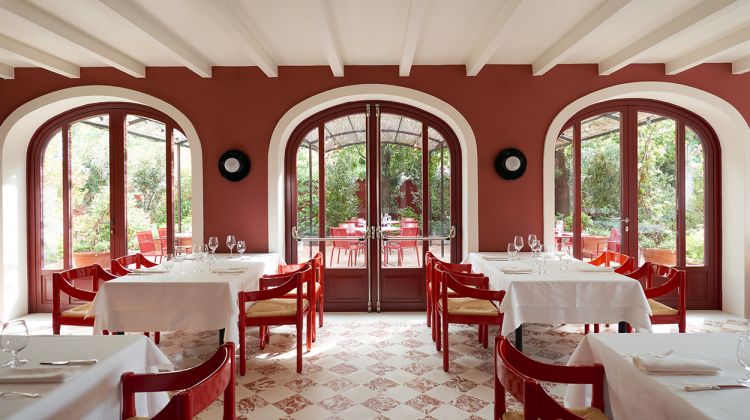
The dining room at Cavallino, with the restored chairs from Magistretti
Everything finds its conceptual context,
Cavallino is a work of art. It interprets the strong points of our history - design, food ... – and makes them current. A great conceptual work, and a great ongoing work too. The merit goes, as mentioned, to the very talented
Riccardo Forapani – but there were no doubts, knowing his merits – in summing up the essence of Emilia in some very convincing tastings. The merit also goes to the flawless service and wines: in the dining room we were welcomed by maître
Denis Bretta, a master of hospitality and affability, also from
Francescana; the overall management is handed to restaurant manager
Luis Diaz, originally from Colombia before he moved to Genoa, his previous experience being at
Seta al Mandarin Oriental in Milan.
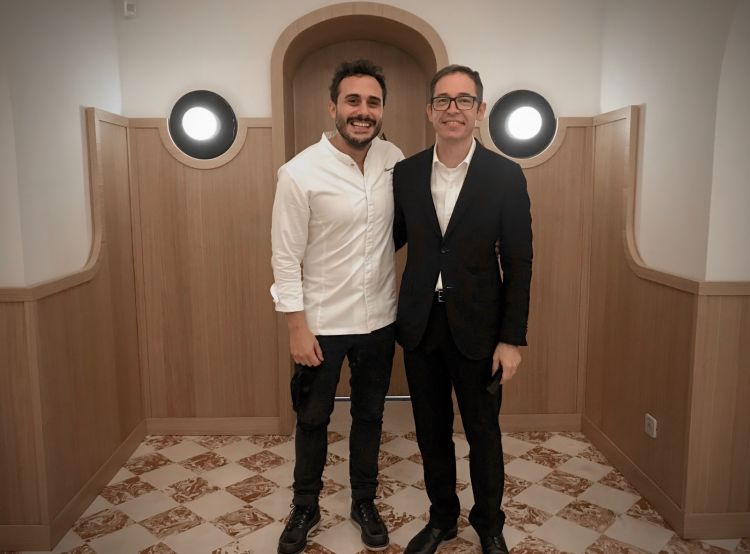
Riccardo Forapani and Denis Bretta
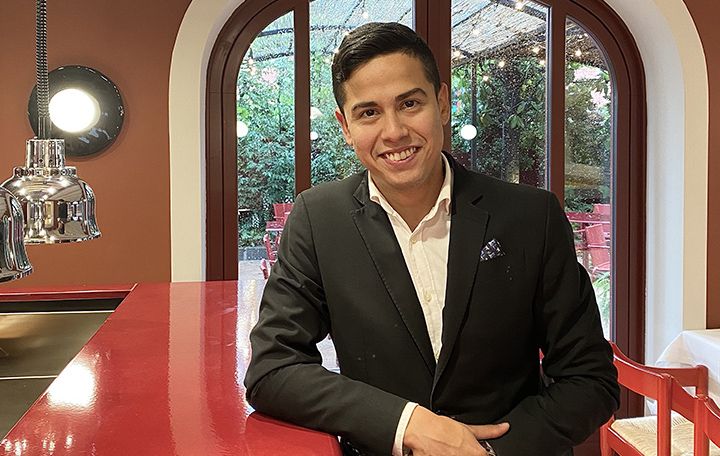
Restaurant manager Luis Diaz. With him at Cavallino there are also Giovanni Meraviglia, assistant manager, and Silvia Campolucci, sommelier
And now the very fine (inclusive, pleasant, fun) meal. Photos from Tanio Liotta.
Translated into English by Slawka G. Scarso
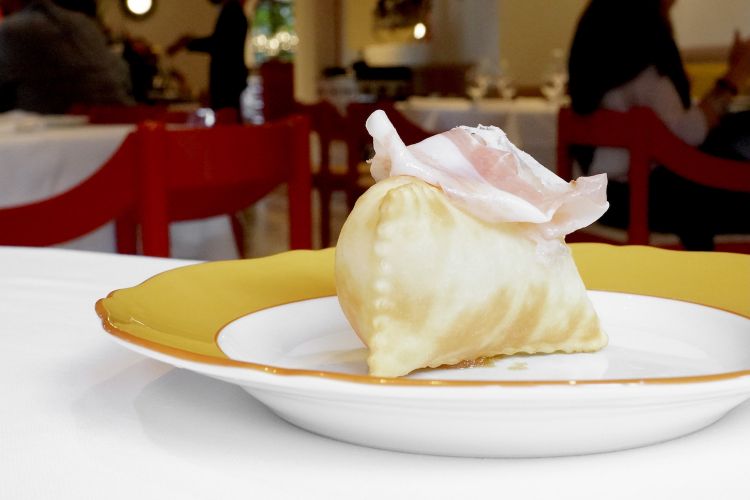
Gnocco fritto, pancetta, apple mostarda. The pancetta is from Leonardi in Marano sul Panaro (Modena)
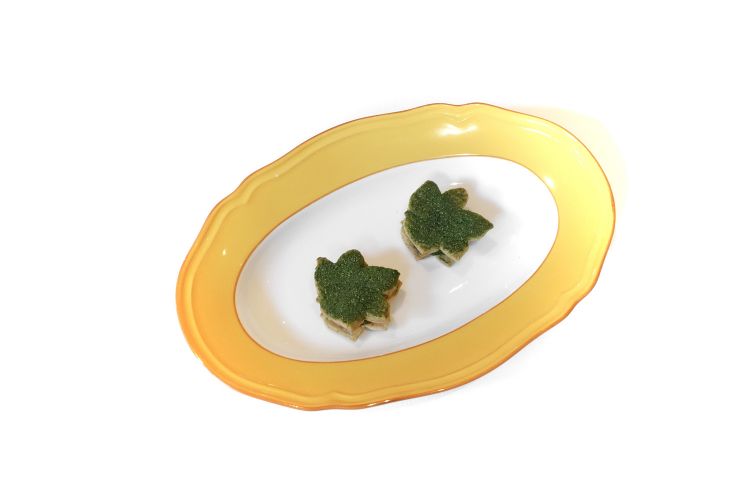
Erbazzone interpreted by Bottura-Forapani becomes a pastry with chopped herbs and dehydrated spinach
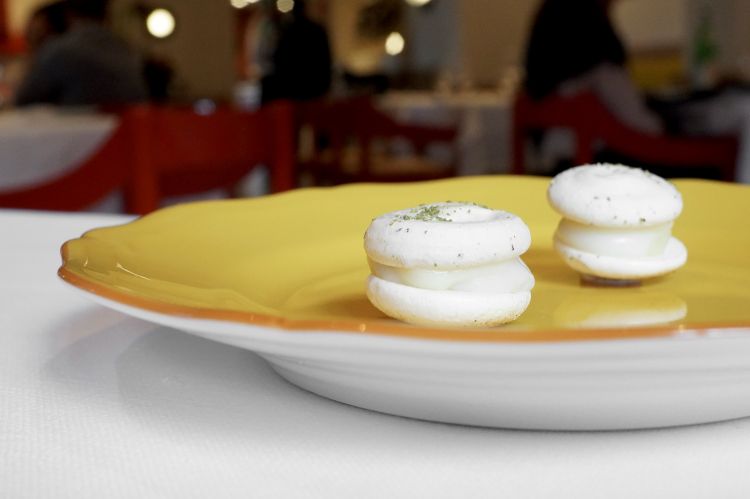
And the tigella turns into macarons with rosemary with a purée of lard, Parmigiano Reggiano and savoury lemon
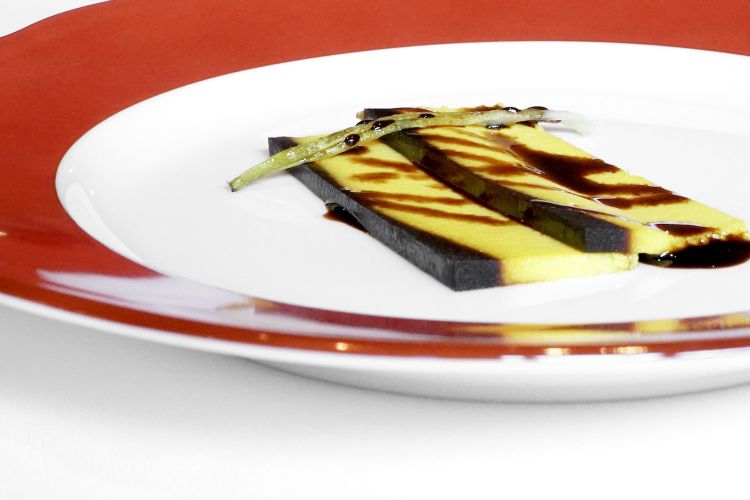
Crème Caramel with Parmigiano Reggiano. Forget France! This is a frittata made with Parmigiano Reggiano 36 months, with a reduction of toasted onions (instead of the caramel) and traditional balsamic vinegar. Very good
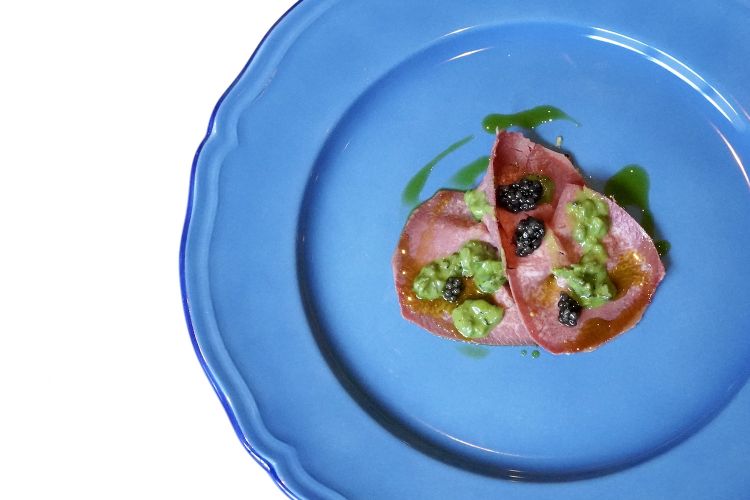
Tongue carpaccio: lingua salmistrata, snails, parsley, sweet garlic, mustard and caviar. Excellent
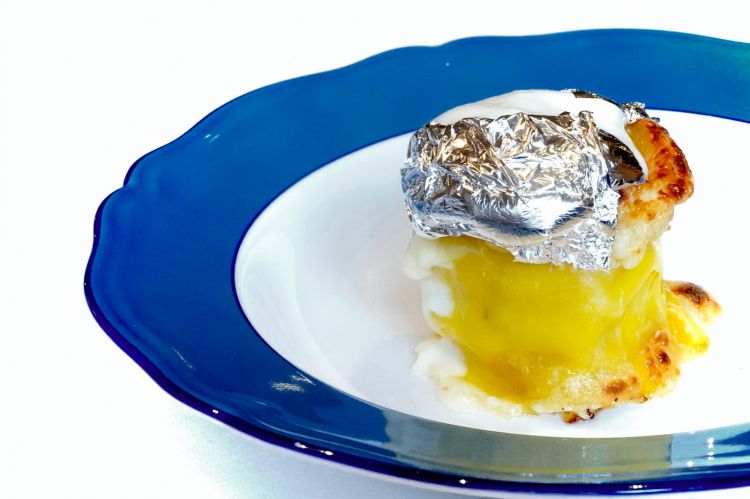
Rosette cooked in the wood oven: the fresh pastry with cooked ham, tosone and bechamel mousse. This is really an astronaut-granny dish
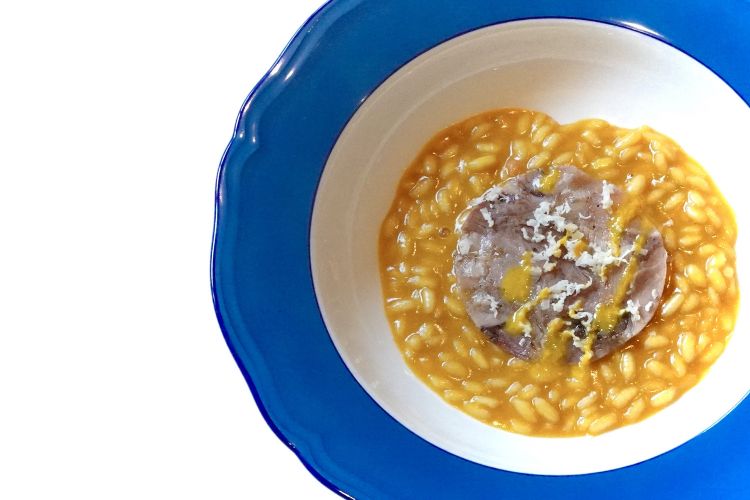
Risotto with pumpkin, coppa di testa, horseradish, prawn carpaccio
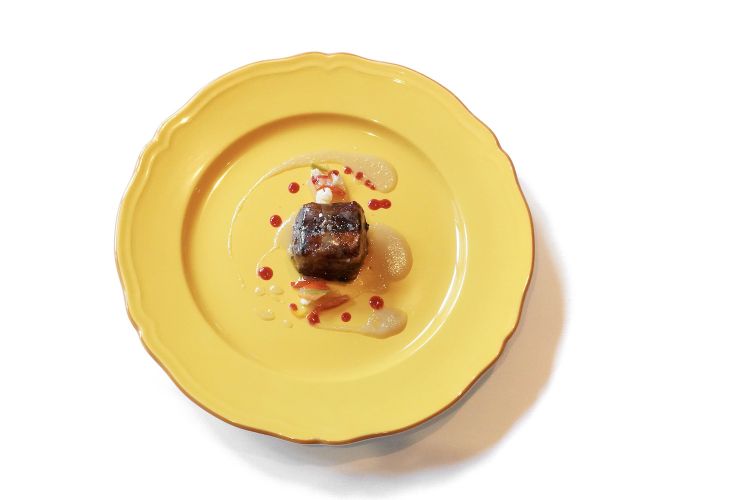
Chargrilled eel filled with pigeon, carpione sauce and giardiniera: look at the masterful use of knives here
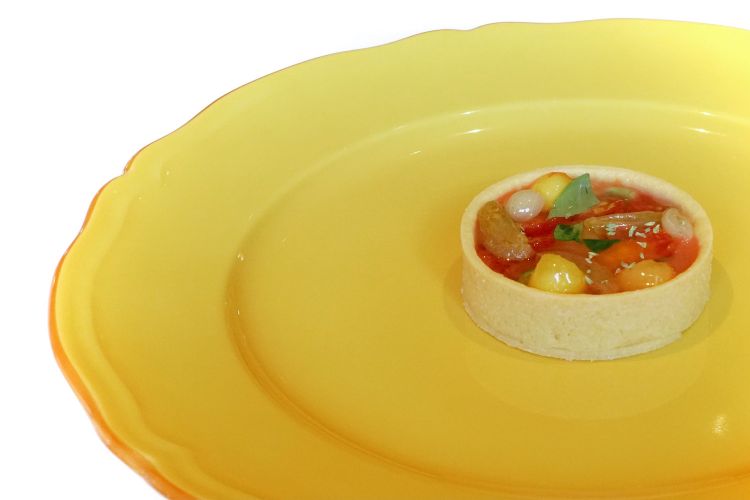
An exceptional Fruit tartelette: a tartelette of savoury sablé pastry, gazpacho of fermented peaches, tomatoes of different types, basil, gel of tomato water. An incredible intermezzo
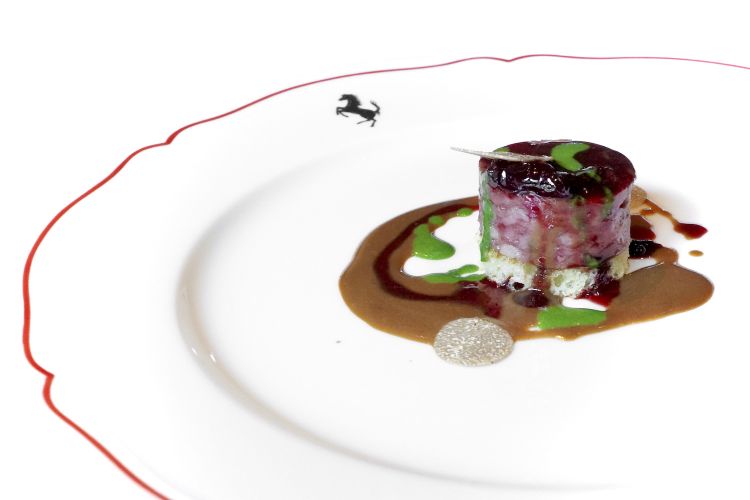
Cotechino alla Rossini: foie gras, pan brioche, black cherries and black truffle
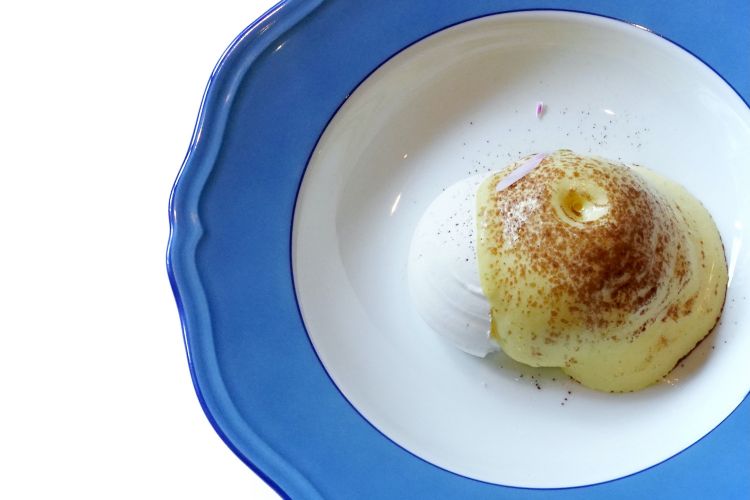
This will make history (quote). Straight – almost – from Campazzo (read here) Paciugo with mascarpone, coffee and cocoa. The mascarpone is a mousse, the coffee an ice cream, and then there's French meringue, amaretti and cocoa powder
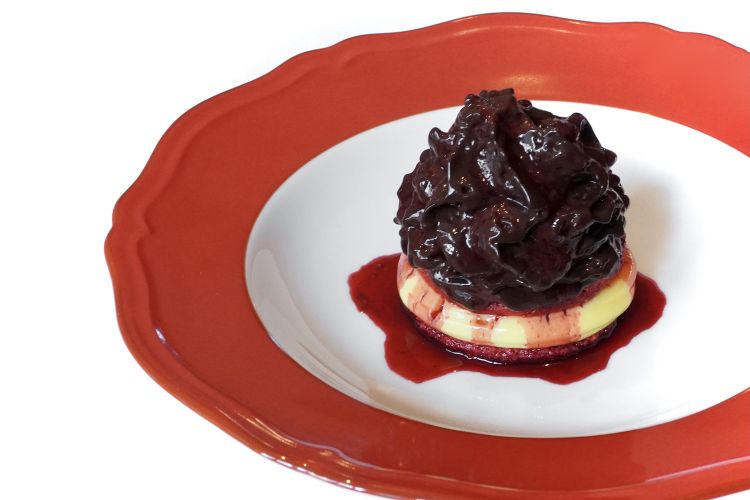
Zuppa inglese, the only dish that is not a blast, but it's one of those dishes for which our expectations are set very high: savoiardi, custard, mousse of cocoa with water, reduction of alkermes